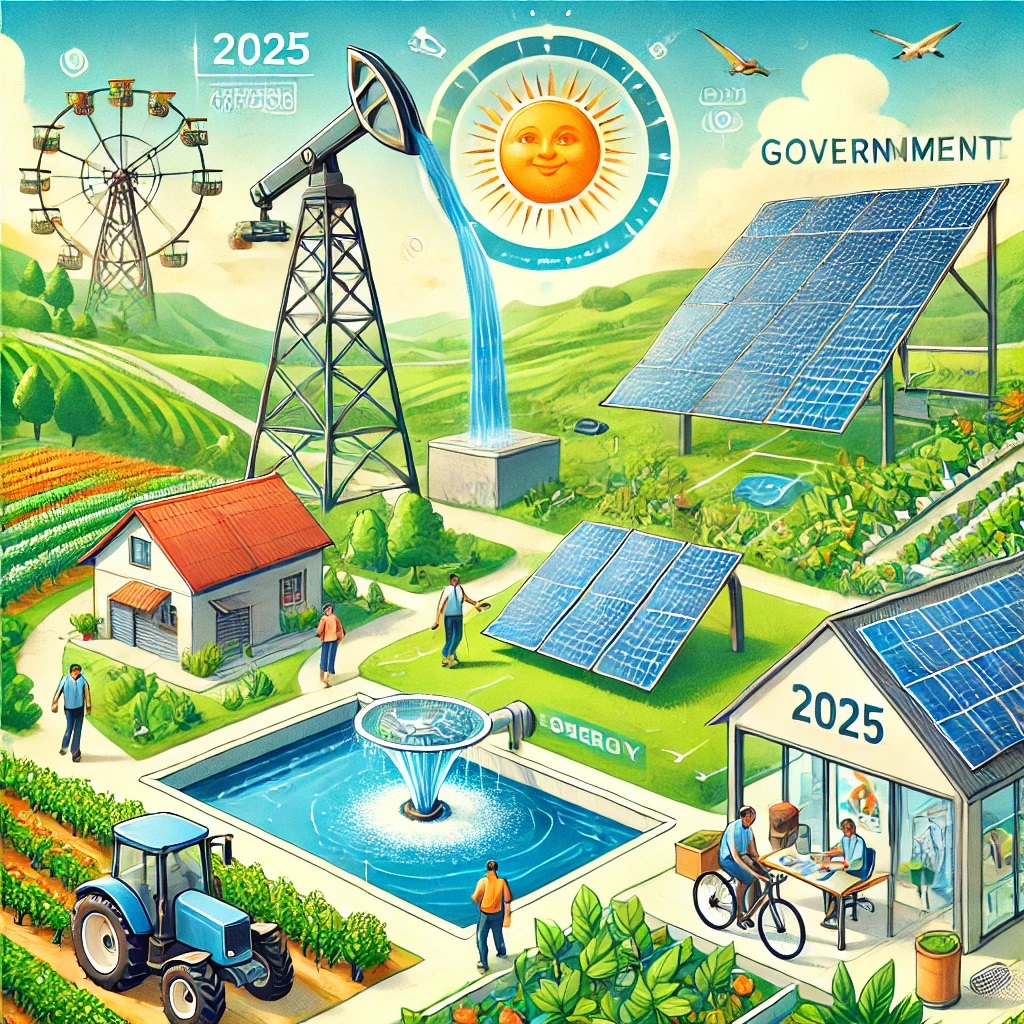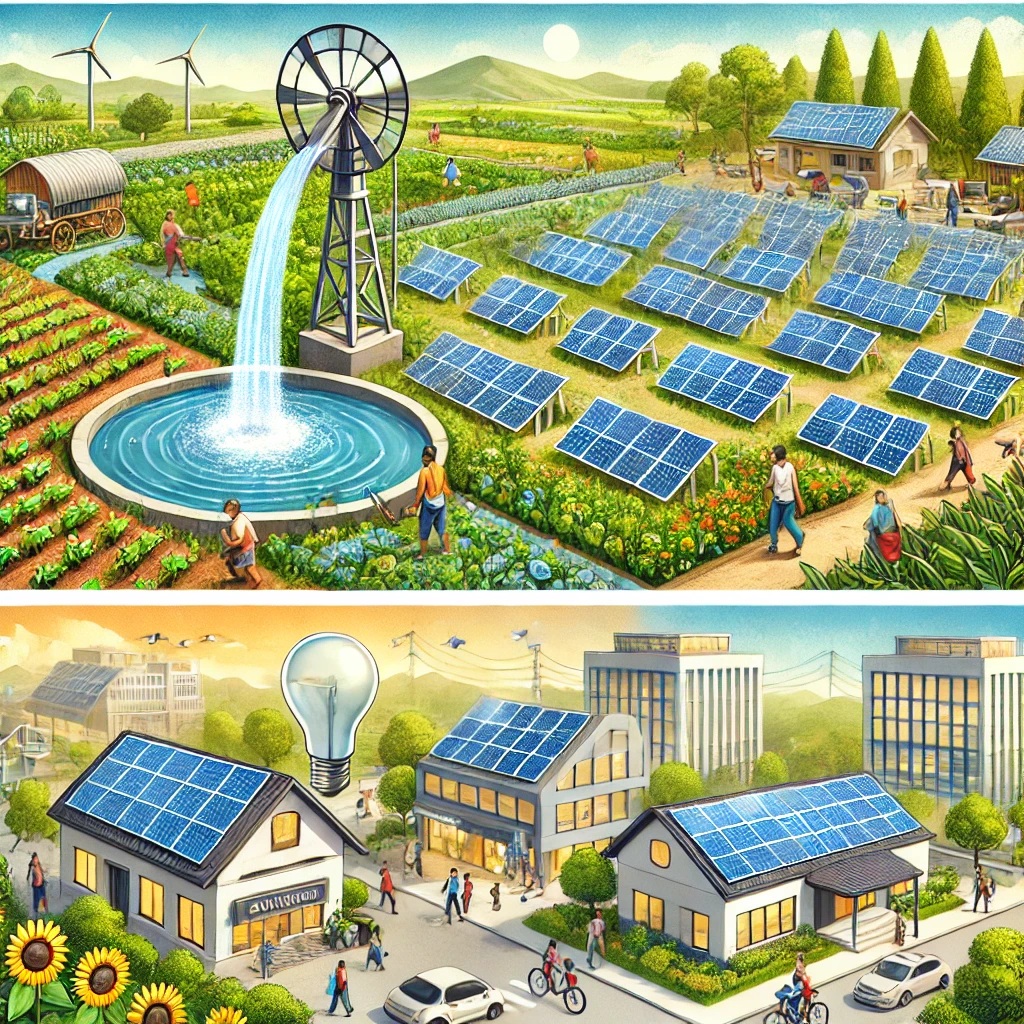Government Solar Schemes in 2025: Everything You Need to Know
Government Solar Schemes in 2025: As the world moves towards a sustainable future, solar energy stands out as a critical solution for combating climate change and reducing dependency on fossil fuels. Governments worldwide, including India, are introducing various schemes to make solar energy more accessible and affordable for individuals and businesses. This blog dives deep into the government solar schemes of 2025, covering their benefits, eligibility criteria, and how you can make the most of them.
Why Solar Energy is Crucial in 2025
Solar energy is a renewable, clean, and abundant source of power. With advancements in technology, solar panels are becoming more efficient and affordable. Here are a few reasons why solar energy is more important than ever in 2025:
- Rising Electricity Costs: Conventional electricity costs continue to climb, making solar a cost-effective alternative.
- Environmental Impact: Solar energy significantly reduces greenhouse gas emissions.
- Energy Independence: Solar energy promotes self-reliance, reducing dependency on external energy sources.
- Government Support: Attractive subsidies and incentives make solar installations more feasible.
Top Government Solar Schemes in 2025
- PM-KUSUM Scheme (Kisan Urja Suraksha Evam Utthaan Mahabhiyan)
- Objective: The PM-KUSUM scheme aims to empower farmers by providing solar-powered irrigation systems.
- Key Features:
- Installation of standalone solar pumps.
- Grid-connected solar pumps with up to 60% subsidy.
- Solarization of agricultural feeders.
- Eligibility: Open to all farmers with agricultural land.
- Benefits: Reduces dependence on diesel pumps, cuts operational costs, and promotes clean energy.
- Rooftop Solar Scheme
- Objective: Encourage residential and commercial property owners to install solar panels on rooftops.
- Key Features:
- Subsidy of up to 40% for residential installations up to 3 kW.
- Net metering allows users to sell excess power back to the grid.
- Eligibility: Homeowners and housing societies.
- Benefits: Lower electricity bills, increased property value, and a step towards sustainability.
- Solar Energy Subsidy Scheme
- Objective: Provide financial assistance for installing solar power systems in urban and rural areas.
- Key Features:
- Financial assistance up to 30% of the total installation cost.
- Focus on rural electrification.
- Eligibility: Open to individuals, businesses, and organizations.
- Benefits: Affordable access to renewable energy, especially in underserved areas.
- State-Level Solar Initiatives
- Objective: Complement central schemes with state-specific incentives.
- Key Features:
- Additional subsidies and tax benefits.
- Custom programs tailored to state-specific energy needs.
- Eligibility: Varies by state.
- Benefits: Enhanced support for local solar adoption.
How to Apply for Solar Schemes
Applying for these schemes is straightforward, thanks to digital initiatives. Here’s a step-by-step guide:
- Research and Choose the Right Scheme: Identify the scheme that best suits your requirements.
- Prepare Documentation: Gather necessary documents, such as property ownership proof, ID proof, and installation estimates.
- Visit Official Portals: Most schemes have dedicated websites for online applications.
- Submit Application: Fill out the application form and upload the required documents.
- Approval and Installation: Once approved, you can proceed with the installation through authorized vendors.

Benefits of Government Solar Schemes
- Financial Savings: Subsidies significantly reduce the upfront costs of solar installations.
- Environmental Benefits: Reduced carbon footprint and dependency on non-renewable energy.
- Energy Independence: Freedom from rising electricity costs and power cuts.
- Enhanced Property Value: Solar-equipped properties are more attractive in the real estate market.
- Contribution to National Goals: Supports India’s commitment to achieving renewable energy targets.
Challenges and Solutions
While government solar schemes are beneficial, challenges such as lack of awareness, high initial costs, and technical issues persist. Here are some solutions:
- Awareness Campaigns: Governments and NGOs can conduct workshops and campaigns to educate the public.
- Easier Financing Options: Loans and EMI schemes can make installations more accessible.
- Technology Support: Dedicated helplines and technical support centers can address common issues.
Conclusion
Government solar schemes in 2025 offer immense opportunities to transition to renewable energy. By taking advantage of these schemes, individuals and businesses can save money, protect the environment, and contribute to a sustainable future. Whether you are a farmer, a homeowner, or a business owner, there is a solar scheme tailored for you. Embrace solar energy today and be a part of the renewable revolution!
For more information, visit the official government portals or contact authorized solar vendors like Vox Solar to get started.











